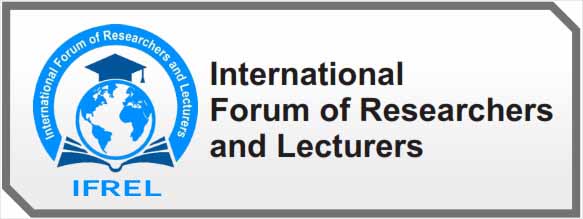Problems of Elementary School Business Education: Systematic Literature Review (SLR)
DOI:
https://doi.org/10.55606/bijmt.v3i2.1391Kata Kunci:
Business Education, Elementary School, Behavioral Economics.Abstrak
Formal education, especially in basic education in entrepreneurship learning, has a big challenge to be able to provide enlightenment to students through the learning process about the need for entrepreneurial behavior that is not only self-oriented, but economic behavior that must also be oriented to the interests of the people, through entrepreneurship learning. Research objectives 1) application of business education 2) economic learning curriculum 3) entrepreneurial behavior of elementary school formal education students. The method used in this research is Systematic Literature Review (SLR) by collecting and analyzing journals related to keywords. Based on the literature study conducted, it was found that entrepreneurship learning does not stand alone in the 2013 curriculum, but merges into other subjects such as Cultural Arts and Crafts to introduce students to currency, production and buying and selling processes, while populist economics learning blends into the subject PPKn lessons understand the Pancasila precepts as the basic foundation of populist economic education.
Referensi
Brown, A., & Deaton, A. (2018). Surveys in Applied Economics: Models of Consumer Behaviour. The Economic Journal, 82(328), 1145. https://doi.org/10.2307/2231303
Dequech, D. (2018). The new institutional economics and the theory of behaviour under uncertainty. Journal of Economic Behavior and Organization, 59(1), 109–131. https://doi.org/10.1016/j.jebo.2004.03.0 12
Faidah, N., Harti, H., & Subroto, W. T. (2018). Pengaruh Pengalaman Ekonomi, Kontrol Diri Serta Pendapatan Siswa Terhadap Perilaku Ekonomi Siswa Sma Di Kecamatan Pasir Belengkong Kabupaten Paser. In Jurnal Ekonomi Pendidikan Dan Kewirausahaan (Vol. 6, Issue 1, p. 59). https://doi.org/10.26740/jepk.v6n1.p59- 82
Firdiansyah, Y. (2018). Peranan Pendidikan Ekonomi Keluarga Dalam Membentuk Ekonomi Siswa. In Journal of Chemical Information and Modeling (Vol. 53, Issue 9, p. 287).
Frederiks, E. R., Stenner, K., & Hobman, E. V. (2019). Household energy use: Applying behavioural economics to understand consumer decision-making and behaviour. Renewable and Sustainable Energy Reviews, 41, 1385–1394. https://doi.org/10.1016/j.rser.2014.09.0 26
Garcia-Sierra, M., van den Bergh, J. C. J. M., & Miralles-Guasch, C. (2018). Behavioural economics, travel behaviour and environmental-transport policy. Transportation Research Part D: Transport and Environment, 41, 288–305. https://doi.org/10.1016/j.trd.2015.09.02 3
Hasmawati, F. (2018). Ekonomi Kerakyatan Berbasis Potensi Lokal. Jurnal Pemberdayaan Masyarakat, 6(1), 12. https://doi.org/10.37064/jpm.v6i1.4986
Kiromim Baroroh. (2018). Upaya Meningkatkan Nilai-Nilai Karakter Peserta Didik Melalui Penerapan Metode Role Playing – Kiromim Baroroh. Jurnal Ekonomi Dan Pendidikan, 8(2), 149–163.
Murdinar, Estu, H., Wahyono, H., & Haryono, A. (2021). Pengembangan Pembelajaran Ekonomi Untuk Meningkatkan Perilaku Produktif Siswa. Jurnal Pendidikan: Teori, Penelitian Dan Pengembangan, 2(1), 73–77.
Murniatiningsih, E. (2020). Pengaruh Literasi Ekonomi Siswa, Hasil Belajar Ekonomi, Dan Teman Sebaya Terhadap Perilaku Konsumsi Siswa Smp Negeri Di Surabaya Barat. In Jurnal Ekonomi Pendidikan Dan Kewirausahaan (Vol. 5, Issue 1, p. 127). https://doi.org/10.26740/jepk.v5n1.p12 7-156
Pangkep, S. D. D. I. (2019). Integrasi Pendidikan Ekonomi Kerakyatan Sebagai Upaya Pengembangan Jiwa Kewirausahaan. 8(2), 75–82.
Prahara, R., Wahyono, H., & Utomo, S. (2018). Kualitas Pembelajaran Ekonomi Di Sman Dan Man Malang Raya. Jurnal Pendidikan: Teori, Penelitian, Dan Pengembangan, 1(12), 2266—2271-2271. https://doi.org/10.17977/jp.v1i12.8225
Purwati, A. (2011). Pengaruh Status Sosial Ekonomi Orang Tua , Persepsi atas Lingkungan , dan Prestasi Belajar Ekonomi. Jurnal Ekonomi Bisnis, 16(1), 11–16.
Putra, N. A., Wahyono, H., Wardoyo, C., Universitas, P. E., & Malang, N. (2016). Internalisasi Nilai-Nilai Pendidikan. 2189–2193.
Risnawati, W, S. U. M., & Wardoyo, C. (2018). Pengaruh pendidikan ekonomi keluarga, gaya hidup, modernitas individu, dan literasi ekonomi terhadap perilaku konsumtif siswa. Jurnal Pendidikan, 3(4), 430–436.
Rohmah, M. (2016). Ekonomi Kerakyatan Sebagai Landasan Pendidikan Ekonomi Indonesia. National Conference on Economic Education, 1633–1643.
Rohmah, Miftakhur. (2020). Evaluasi Pendidikan Ekonomi Pada Kurikulum 2013 Ditingkat Sekolah Menengah Atas (Sma). UTILITY: Jurnal Ilmiah Pendidikan Dan Ekonomi, 4(1), 56–70. https://doi.org/10.30599/utility.v4i1.631
Rosmiati, E. (2012). Koperasi Sebagai Implementasi Ekonomi Kerakyatan. Widya, 29(320), 41–46. \
Toma, L., Stott, A. W., Heffernan, C., Ringrose, S., & Gunn, G. J. (2013). Determinants of biosecurity behaviour of British cattle and sheep farmers-A behavioural economics analysis. Preventive Veterinary Medicine, 108(4), 321–333. https://doi.org/10.1016/j.prevetmed.20 12.11.009















